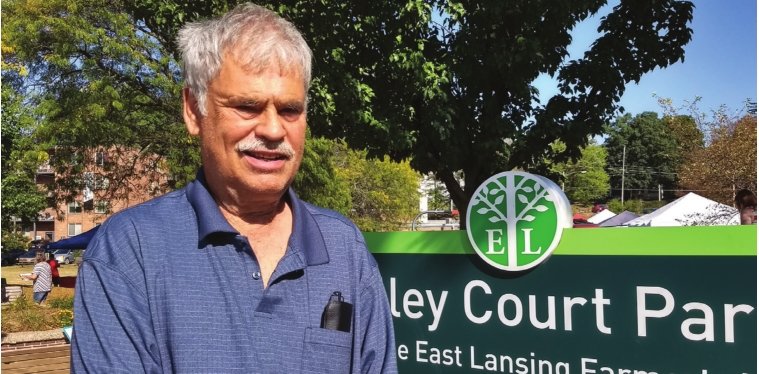Thank you for reading this City Pulse article. Help keep our pulse strong, click here to contribute to our award-winning news coverage.
As many as 10,000 low-income BWL customers facing hole in safety net
Thousands of low-income customers of the Lansing Board of Water & Light will lose access to a state-operated utility assistance program beginning Oct. 1. That move has left human services providers in the area scrambling to figure out how to fill the gap and resulted in one BWL commissioner announcing he will resign.
“It’s a sad situation that could be corrected if they just opted into the program, and they are not doing that,” Robert Nelson, a non-voting member of the public utility’s Board of Commissioners representing East Lansing, said in a phone interview. “So in good conscience I can’t support this anymore. I can’t allow you to do this anymore.
That’s why I am resigning.”
“The sad situation” Nelson referred to was the BWL decision to opt out of a voluntary program that funds heating and electricity assistance administered by the Michigan Department of Health and Human Services.
The program was created in 2013 by lawmakers. It caps the total amount of money to be collected and distributed at $50 million each year. The costs are assessed to the utilities based on how many meters are in the service territory. Last year, each ratepayer in participating utilities paid a 97-cent monthly surcharge. Those dollars are then distributed to a total per-customer need of up to $3,000, half of that for electric payments and half for propane or natural gas heating assistance. This year they’ll pay 93 cents.
BWL spokesman Steve Serkaian said that if the utility participated in the program it would not only raise rates by 93 cents a month, it would “require the BWL to start winter electric shut offs.”
But Nick Assendelft, a spokesman for the state Energy Department and the Public Service Commission, said participating in the fund does not mandate shut offs.
East Lansing’s Nelson has been advocating for the BWL to join the fund for two years now, BWL board Chairman David Price said in an interview.
Nelson noted that while the BWL has not paid into the fund since its inception in 2013, BWL customers have still benefitted from the funds. However, he said the utility doesn’t want to pay into the fund and distribute its customers’ money to other utilities, a sentiment echoed by spokesman Serkaian.
“They want to take advantage of the fund, but they don’t want to pay into it,” Nelson said. “It makes about 10,000 low-income BWL customers very vulnerable.”
He said the BWL collected about $1 million in funding from the program last year to assist low-income residents pay their bills.
Price said BWL attorneys have told them Nelson’s understanding of the law is “not correct.”
But Bob Wheaton, a spokesman for the Michigan Health and Human Services Department, said because BWL failed to opt into the program by July 1, there will be serious consequences.
“It means they will not be eligible for State Emergency Relief funding. However, because LBWL opted out, customers will be protected from utility shut-off from Nov. 1-April 15,” he wrote in an email.
While Serkaian, Price and Nelson all noted the shut-off protection for electricity, Price conceded that water service “was another issue. That could be shut off. It would be on a case-by-case basis.”
Nelson said not having access to that funding, which also waives late fees from the utility, means low-income consumers will rack up larger bills during the winter months, and “many won’t be able to pay it come April and will end up being shut off anyway.”
Effective with the beginning of the state’s new fiscal year on Sunday, state officials said the funds would only be used to assist customers of utilities that had paid into the fund.
The move was part fairness to those paying in and concerns over an uncertain future of federal funding for low-income energy assistance. The state is “tightening its belt,” said Assendelft.
The BWL’s Serkaian said the utility provides assistance to customers already and that won’t change. But the amount he noted is far short of the $1 million Nelson said was paid in state funding last year.
“BWL provides multi-pronged customer assistance that ensures BWL dollars are contributed only to BWL customers in need,” Serkaian said. “Pennies for Power averages $50,000 in annual payment assistance from money raised by customer contributions and BWL community program contributions. The BWL also has a memorandum of understanding (MOU) with the City of Lansing in which BWL contributes $200,000 for customer payment assistance. Both Pennies and the MOU are administered by Lansing’s Society of St. Vincent DePaul. In addition, BWL works with several local agencies that provide payment assistance to BWL customers. One such agency provided $127,000 in payment assistance to BWL customers last year. Lastly, the BWL works with its customers year-round to provide flexible payment plans when they fall behind.”
Support City Pulse - Donate Today!
Comments
No comments on this item Please log in to comment by clicking here